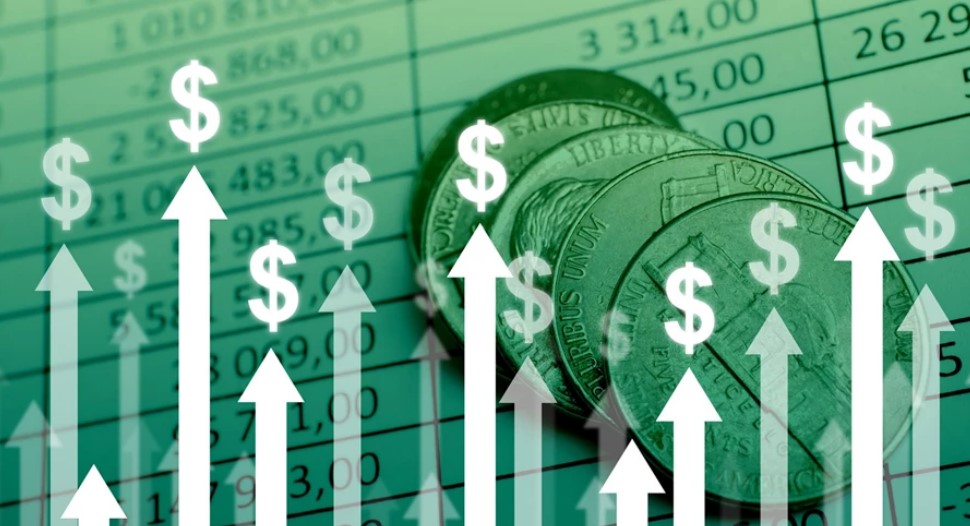 By Brad Polumbo
By Brad Polumbo
Inflation is making headlines again this week. The federal government’s latest data show that consumer price rose 7.5 percent from January 2021 to 2022. That’s the highest rate of price inflation we’ve seen in nearly 40 years!
What does this mean for everyday American families?
A new analysis from Moody’s Analytics reports that the average US household is paying an additional $250 a month thanks to this inflation.
“A lot of people are hurting because of high inflation,” Moody’s senior economist Ryan Sweet told the Wall Street Journal. “$250 a month—that’s a big burden. It really hammers home the point of ‘what is the cost of inflation?’”
This disturbing revelation brings into focus something we already knew about inflation: it hurts the working class the most. While $250 a month is hardly a noticeable increase for millionaires, that could easily strain a working-class or even middle-class family’s budget past its breaking point.
Price inflation also erodes Americans’ hard-earned savings in a way that’s just as painful as the government directly hiking their taxes. As economist Ludwig von Mises colorfully put it, inflation is when “money, like chocolate on a hot oven, [is] melting in the pockets of the people.”
That’s exactly what we’re living through. But this leaves us with a more important question: Why are we seeing this surge in consumer prices? Is it some abstract economic phenomenon beyond our control? Is it due to “corporate greed?”
On the contrary, inflation directly traces back to decisions made by our elected (and unelected) government officials.
“The most important thing to remember is that inflation is not an act of God, that inflation is not a catastrophe of the elements or a disease that comes like the plague,” Mises famously explained. “Inflation is a policy.”
The primary cause of today’s inflation is the decision by the Federal Reserve, America’s central bank which controls the US dollar, to create trillions of new dollars out of thin air to ostensibly “stimulate” the economy during the pandemic.
Federal Reserve Chairman Jerome Powell openly admitted as much in an interview with CBS.
Easiest way to get your first bitcoin (Ad)
The mystery of Inflation.
"You flooded the system with money."
"Yes, we did." pic.twitter.com/2ClRf97fg7
— Jon Miltimore (@miltimore79) January 17, 2022
“[Is it] fair to say you simply flooded the system with money?” a reporter asked.
“Yes,” he responded. “We did. That’s another way to think about it. We did.”
“Where does it come from? Do you just print it?” the journalist followed up.
“We print it digitally,” Powell replied. “So as a central bank, we have the ability to create money digitally… that actually increases the money supply. We also print actual currency and we distribute that through the Federal Reserve banks.”
To understand what “flooding the system with money” looked like, just consider the following graph of the money supply—and how dramatically it soared at the start of 2020.

How does increasing the amount of money out there lead to higher prices?
As FEE economist Peter Jacobsen has explained, “If more dollars chase the exact same goods, prices will rise.”
We’re watching this Econ 101 lesson play out before our eyes. And it’s a painful lesson indeed for the millions of American families that have hundreds more out of their monthly budgets just to tread water. Here’s hoping our policymakers learn from their mistakes before it even gets worse.
Source: FEE
Brad Polumbo (@Brad_Polumbo) is a libertarian-conservative journalist and Policy Correspondent at the Foundation for Economic Education.
Become a Patron!
Or support us at SubscribeStar
Donate cryptocurrency HERE
Subscribe to Activist Post for truth, peace, and freedom news. Follow us on Telegram, HIVE, Flote, Minds, MeWe, Twitter, Gab, What Really Happened and GETTR.
Provide, Protect and Profit from what’s coming! Get a free issue of Counter Markets today.
Inflation Is Costing Households $250/Month, Moody’s Analysis Finds